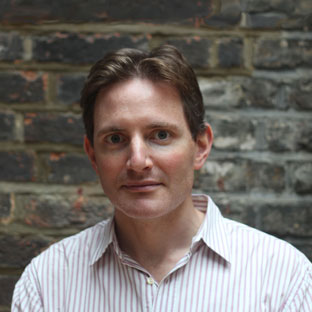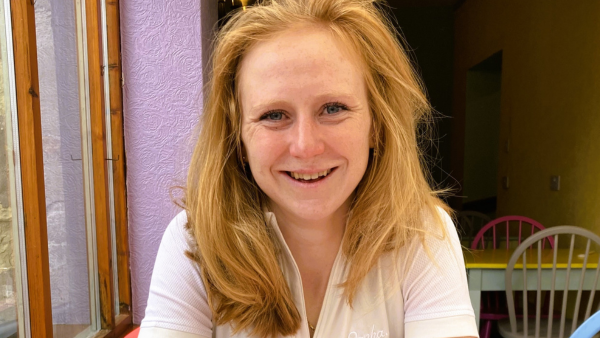Fellows have always been at the heart of the RSA - from the original 11 members sitting round a table in a coffee shop in Covent Garden 260 years ago, to the 27,000 we have today all over the world. One area we’re working hard at is to ensure Fellows are at the heart of the projects we undertake.
While we have always done this to some extent, we are currently attempting to do so in a much more comprehensive way. If we can make more of the extraordinary skills and experience within our Fellowship, we will be able to achieve far more than we currently do. We are still at the early stages of working out how to achieve this in practice, but we’ve made good progress lately that we thought we’d share.
We have been clearer on our major themes of work. Hopefully this is helpful for Fellows to understand the areas we are focusing on. Within those themes we have two areas we’re developing; how to support Fellow-led projects and how to involve Fellows more in work undertaken by staff. I’ll talk more about our support for Fellows’ projects in another post.
When it comes to involving Fellows in our work, our starting point is to look at every stage of a project, from initial conception through research to dissemination, and think through how we can work with Fellows to improve what we do. To give a few examples of what we have tried recently;
- We sent early recommendations from our report on self-employment to Fellows who we identified as likely to be self-employed (no easy task) for their feedback.
- We have brought together Fellows in leading positions in higher education and health to look at what the current problems are and where we should be focusing our efforts to solve them.
- Fellows have become mentors for social enterprises we are working with.
- We have used knowledge from Fellows to contribute to our research on City Growth.
- We are developing a strong network of school governors to help implement the changes we want to see in schools. If you’re a governor and want to be part of our network, email Tom, who is leading this area of work.
We’re still at an early stage, trying different ways to involve Fellows, obtaining feedback on what works well and evolving what we do. It can be frustrating at times, as our research work is largely externally funded and we have to follow the timelines of projects, waiting for the appropriate time to implement the various options. As such it will take quite a while to build up a comprehensive picture, though we’re already a lot further on than even a few months ago.
It may be that you’d like to be involved in this type of activity and are wondering why you haven’t been called upon. One of the difficulties we face is thinking of ways to engage meaningfully when we have so many Fellows. With the self-employment report mentioned above for example, we identified about 4,000 Fellows who were likely to be self-employed and therefore may have had something to contribute (let alone those not self-employed who could also contribute). If we had contacted them all we wouldn’t have been able to handle the response, and it would have meant we did not pay due attention to everyone’s contributions. We preferred to keep things manageable, so that everyone who did contribute would feel confident that their effort was valued.
Another practical challenge we have is that involving Fellows depends on the timing of projects, as mentioned above. We may have periods where a lot is going on, and others where there is less activity. However as we continue more opportunities will undoubtedly arise.
If you do want to be involved then the best way is to ensure your profile on our website is up to date and that you select any of the interests on our list that are applicable to you. This is one of the main ways we find Fellows who might have an interest in a particular area of work.
We’re at an early stage of ensuring our Fellows are embedded throughout our research work, but it’s exciting to already see the positive impact of doing so. I look forward to updating you as we continue to do so and if you have any ideas on how we can engage more effectively with Fellows around projects, do let me know.
Oliver Reichardt is the Director of Fellowship at the RSA
Follow him @OliverReichardt
Related articles
-
Rachel Drapper: Featured Fellow Q&A
Rachel Drapper
Rachel Drapper, CEO and founder of Fairshare, discusses domestic labour inequity, gender roles and the way forward for those in our community who are striving for equity inside and outside the home.
-
RSA Fellows making an impact in the LGBTQ+ community
Maeve Devers Kirby Fullerton
Learn about just a handful of RSA Fellows doing innovative work to bring about social change in the LGBTQ+ community.
-
Comment at the RSA: coming full Circle
Mike Thatcher
The RSA has launched a Comment 'space' on its Circle community platform as it moves to a Circle-first approach for comment articles authored by Fellows.




Join the discussion
Comments
Please login to post a comment or reply
Don't have an account? Click here to register.
Thanks Oliver for sharing your thoughts. I have been recently elected as a Life Fellow. Encouraging Fellows to contribute academically and socially to prove applied development is a very significant way inducing and managing social and cultural change. However, I feel that we should also be open to academics who volunteer to open brainstorming ideas by delivering brief sessions and initiating discussions with the Fellows of common interests. I hope you would like also to encourage such moves among the Fellows.
Hi Oliver, I've had a great response reaching out to RSA Fellows on LinkedIn. I'm still a relative 'newbie' so taking small steps, with purposeful intent. We are blessed by today's technology, so making efforts here in digital motion and hope to be at RSA House again soon for an event. In the meantime the small steps are connecting with Fellows and the myriad of ways to serve best in the field of arts, manufactures and commerce.
hi not sure if this is going to work for me but I find the subject intresting. not that I have tried to contact any other members. being dyslexic text format isn't the best way for me has you can see. but i have been working within the commaity for some 20 years and would be more then happy to help out with other local fellows.
Islington RSA has started using a 'random meet-up' system, which has been good fun so far, and I've met some very interesting Fellows since it started, with some possibilities for collaboration emerging. They've also held events in Islington with brilliant speakers talking about pressing issues. It suggests that local groups may be the best way forward for the Fellowship. It can be difficult to get in to John Adams House at lunchtime or just after work.
Hi Matthew,
This sounds interesting. I'm just putting together some thoughts about our experience of networking for Fellows in the Bristol/West region. I'd be interested to know more about the 'random meet-up' system and how effective you find it.
Hi David, I've really enjoyed the random meet-up system. I have met some really inspiring people in the Islington RSA so far, some of whom I might be able to involve in one of the two Masters programmes I teach.
The local event was excellent too, an eminent speaker (Prof Loretta Lees) talking about a local issue (gentrification in Islington). I'm hoping there might be more.
feed back from field workers are probably the best options in research. Engagement of fellows from area of practice will particularly enhance any project or research
Hi Popson,
I totally agree. As I mentioned, getting feedback from practitioners on our reports has been great, and we hope to do more of this kind of work in the future, including engaging Fellows more in our research.